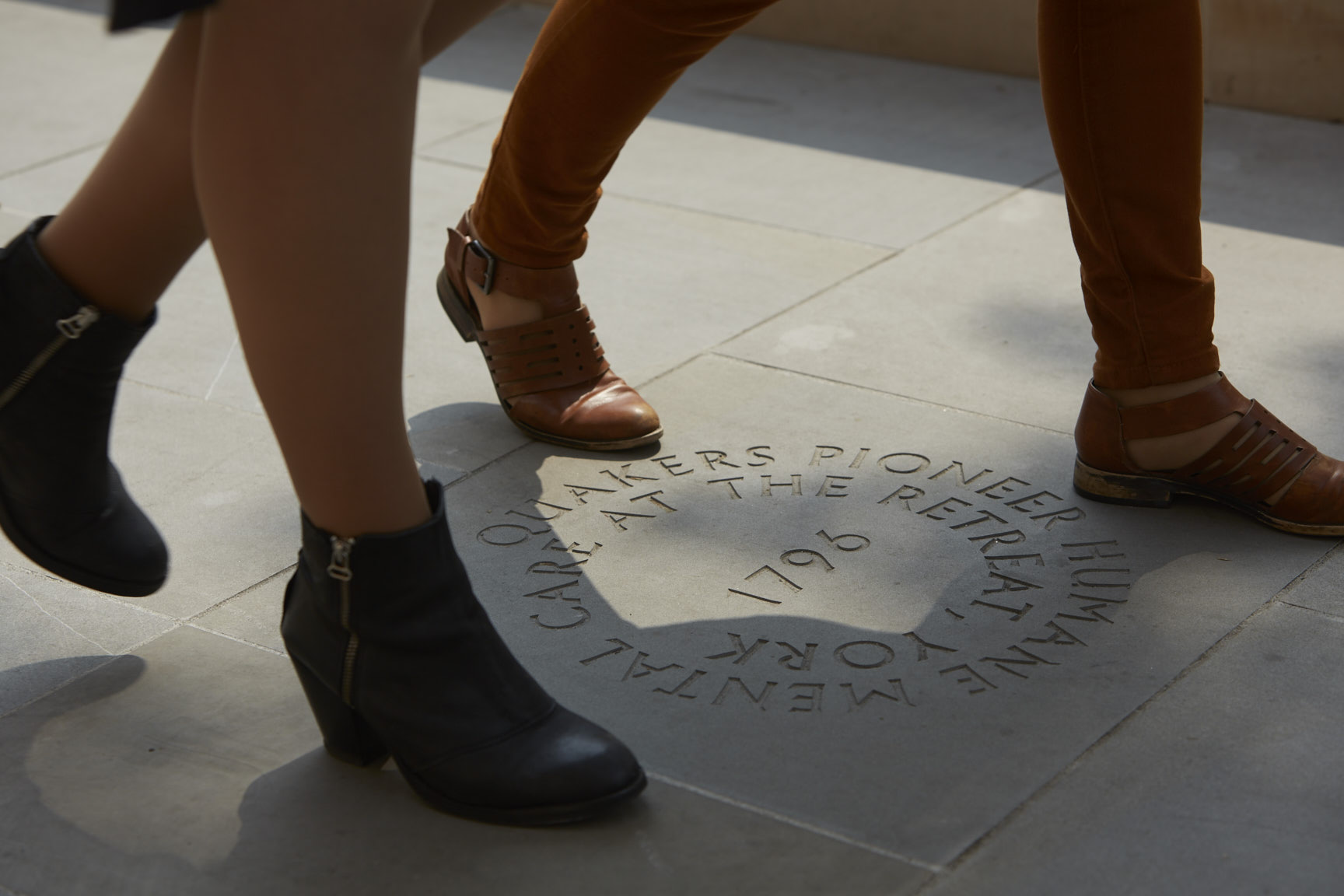Quakers work boldly to overcome inequality
Young Quakers have buried a time capsule in a timeline of Quaker history in the re-landscaped garden at Friends House in London, topped by the words “peace, equality, simplicity and truth".
The capsule contains symbols of a vibrant faith and of their vision for the world in 2116, including spiritual guidance they helped to write, a lump of coal and a solar charger, a letter from Quaker Ruth Cadbury, MP and campaigning t-shirts and badges.

A programme for more than 100 young people, from babies to teenagers, was part of Yearly Meeting 2016, bringing together 1,000 Quakers from around Britain, visiting Quakers from around the world and interfaith guests, included Billy Kennedy, a president of Churches Together in England, and Jagbir Jhuti-Johal, senior lecturer in Sikh Studies at the University of Birmingham.
[QUOTE-START]
During our Yearly Meeting we were moved, encouraged and stirred up to do what love requires of us
- Paul Parker, Recording Clerk
[QUOTE-END]
The theme of the four days of work and worship focussed on Quakers living out their faith in the world, on using gifts wisely and on their long tradition of testing concerns at local, area and yearly meetings. Impelled by the belief that Quakers see God in everyone, many spoke about being pushed into action: from the example of outstanding social and political work by Ada Salter in World War 1, to today's climate activists, anti-nuclear protesters, prison visitors, ethical landlords tackling the housing crisis, and all, in their day-to-day lives.
- In the Swarthmore Lecture, African Quakers shared their experience of peace work responding to conflict in east and central Africa, mending broken hearts and rebuilding shattered lives. Some of the causes of conflict they see, such as poverty and inequality, are present in Britain.
- A climate activist, facing a suspended prison sentence, said he told a trial judge that what he learned at Quaker youth events helped lead him to block a runway at Heathrow Airport in protest at proposals for new runways, amid the linked climate and refugee crises.
- Another said he became a climate change campaigner when he made the link between war for oil and oil causing climate change. “When I think of war, poverty, discrimination, environmental damage, I think of it as a sign that those right relationships have broken down. Religion for me is about healing those broken relationships, something that has been part of the spiritual life of Quakers since our foundation and fundamental to the teachings of Jesus himself." After he spoke, eighty Quakers felt led to take part in a meeting for worship at the British Museum, protesting at BP's sponsorship.
Paul Parker, Recording Clerk for Quakers in Britain said: “During our Yearly Meeting we were moved, encouraged and stirred up to do what love requires of us. Quakers have felt pushed to work more boldly to overcome inequality. God has no hands but ours."
Any member of the 480 Quaker meetings around Britain may attend the Yearly Meeting sessions and associated lectures. Membership records show that around 13,400 people are members, a decrease of 126 on 2014; a further 9,666 people attend Quaker meetings regularly. There were 41 marriages in 2015, an increase from 29 in 2014. There were 9 same-sex marriages and 32 opposite-sex marriages.
For the first time, membership records show the number of adults who have indicated a gender identity other than man or woman. This might include people who have stated they are agender, neutrois or who have another non-binary gender identity. This change follows requests from individuals and area meetings.